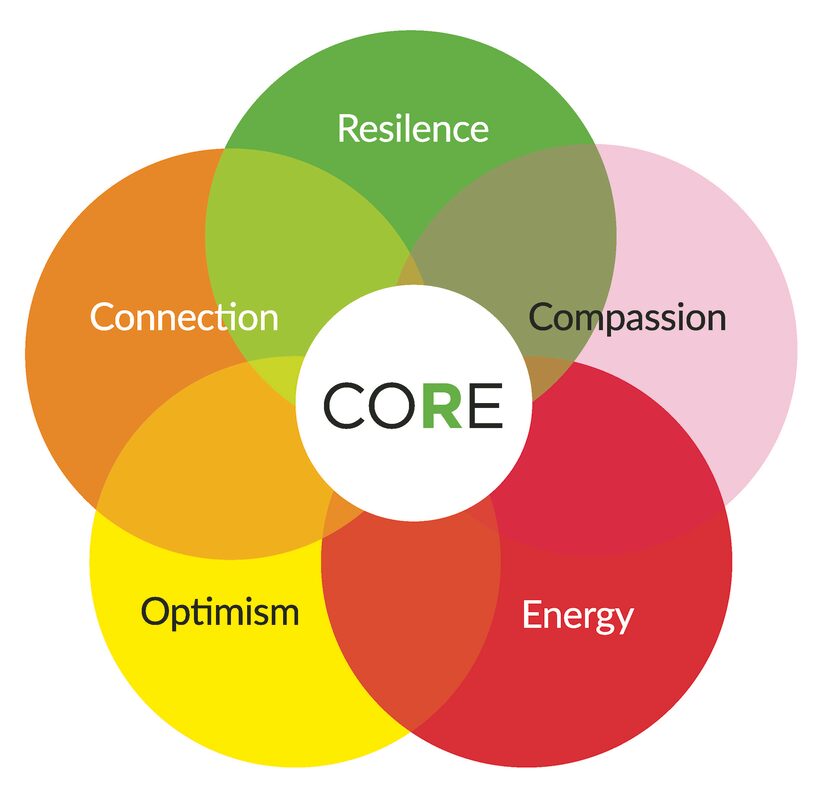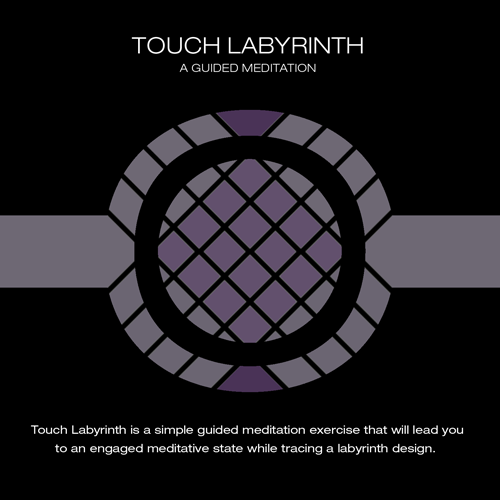 CORE for Coping: How Daily Habits Build Resilience Against Stress Learn to flip the script on stress, using it as fuel to ignite focus, resilience, and peak performance. Say goodbye to the ‘stress monster’ myth and embrace a growth mindset that conquers challenges. Much like athletes evaluate their physical fitness using metrics like strength and endurance, we can measure our overall wellness using the CORE principles: Connections, Optimism, Resilience, and Energy. Strengthening these aspects of our lives helps us thrive even under stress. What is CORE?
Perfection in every CORE element isn't the goal. We all have low-energy days or moments of pessimism. The key lies in creating small, consistent daily practices that enhance your CORE strength. These habits have the power to dramatically transform your attitude, health, and relationships. Kickstart Your Day with CORE Choose at least one mini-exercise from each category:
Want some simple physical exercises based on Tai Chi and Chi Gong, check out this video
1 Comment
Confession: I Procrastinate
I procrastinate. I like to consider myself organized and good with time management, but for boring or tedious tasks, I find myself chatting with friends, reading, checking emails, or scrolling through social media. Research shows that procrastination is common, affecting about 95% of us. Why? We simply have too much to do and not enough time. So we delay tasks or decisions. It happens! For instance, this article started two months ago as a way to offer tips to you, the reader, on overcoming procrastination. There's no strict deadline for my blog posts, and this delay actually allowed me to see the topic from a fresh perspective. Traditional Approach: Time Management and Procrastination One in five of us are chronic procrastinators. This constant delay on important tasks and decisions can affect our health, relationships, and work. We need to take action and be efficient and effective in those areas. Here's a helpful equation by procrastination researcher Piers Steel to understand why we procrastinate: Motivation = (Expectancy x Value) / (Impulsiveness x Delay) Procrastination happens when our motivation is low.
If you're still reading, you're probably someone who procrastinates but it doesn't negatively impact you much. You're here to learn how to be more effective with your procrastination. Research shows that some delay and reflection on tasks and decisions can prevent mistakes and improve results. Here's a mindfulness approach to procrastination: Regularly review your tasks and decisions and categorize them into four buckets:
The Pomodoro Technique: Beat Procrastination! The Pomodoro Technique, developed by Francesco Cirillo in 1992, is a powerful tool against procrastination. Here's how it works:
For more details on the Pomodoro Technique, check out the following resources: Check out this cool 2 page handout at UCSD for building your motivation. https://caps.ucsd.edu/_files/handouts/handout_buildingmotivation.pdf Frank Partnoy (2012) Wait: The Art and Science of Delay Hardcover 2012 Steel Piers (2012)The Procrastination Equation: How to Stop Putting Things Off and Start Getting Stuff Done Measures of Procrastination Try these online tools http://procrastinus.com/procrastination/measure-my-procrastination-3/ http://testyourself.psychtests.com/testid/2118 https://www.mindtools.com/pages/article/newHTE_99.htm http://www.tulane.edu/~rice/tdp/pscore.htm |
a guided finger meditationEngage your senses with soothing music, guided imagery and a labyrinth tracing activity which leverages the power of touch. Click the album cover to learn more. Categories
All
|

 RSS Feed
RSS Feed